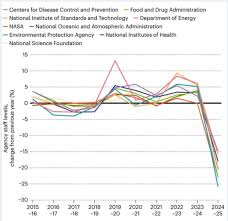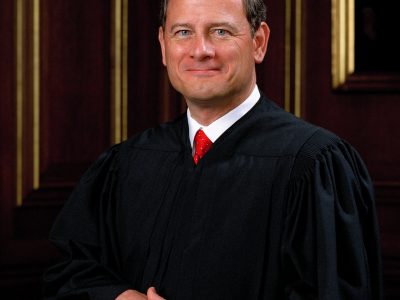The Compact for Censorship
The so-called compact is a thin front for massive incursion into free speech and academic freedom.
The Administration released a “Compact” with universities late last week. It’s rife with First Amendment violations, many of which would directly impact teaching and writing about environmental issues. Because violation of the agreement triggers draconian sanctions, and the Administration is the judge of what constitutes a violation, the chilling effect will be tremendous. I’ll start with the draconian threats and then turn to the harmful impact on environmental studies of all kinds. I’ll also mention another example that’s been within this website’s ambit, public health.
The Threats
If you don’t take the deal:
“Institutions of higher education are free to develop models and values other than those below, if the institution elects to forego federal benefits.” Early in the same paragraph, there’s a list of federal benefits: student visas, tax exempt status, student loans, research grants, and government contracts. “Nice campus you got there. It’d be a shame if your students couldn’t get loans, your faculty couldn’t get research grants, and your tax exemption got cancelled.” If that sounds far-fetched, they’re attempting or threatening all of those penalties on Harvard.
If you do take the deal:
If government finds a breach of the Compact:
- The university loses “the benefits of this agreement” for at least a year.
- All federal funds received during the year must be refunded (even if the money was already spent on research or students.)
- Donors who contributed between the university’s signing the Compact and the finding of a violation can get their money back, no questions asked.
Because of these draconian penalties, universities joining the compact will lean over backwards to avoid anything that could possibly be objectionable to the Trump Administration. And since the provisions of the compact are so vague, the Administration can always use the mere possibility of invoking the penalties as leverage to force universities to comply with their wishes in other ways.
Restrictions on University Spending
“Signatories shall responsibly deploy their endowments to the public good.” We know that the Trump Administration does not believe that climate research or research on renewable energy furthers the public good. That’s why they’ve cancelled a bunch of grants already. And Trump sees Blue State climate policies as a threat to national security. Research or teaching on issues relating to environmental justice would also cross Administration red lines. So, no use of the endowment for any of those purposes.
Limits on other spending: universities must prohibit “support for entities designated by the U.S. government as terrorist organizations.” That sounds reasonable enough, until you realize that the Trump Administration will be deciding who to list as “domestic terrorists,” and they’re already threatened to list liberal organizations. “Support” could be interpreted very broadly, such as allowing a student chapter on campus. Can we be sure that Trump won’t start listing organizations like Greenpeace and 350.org, given what he’s already said about “environmental extremists”?
Limits on University Entities
“All university employees, in their capacity as university representatives, will abstain from actions or speech relating to societal and political events except in cases in which external events have a direct impact upon the university.” A “societal event” could be a measles outbreak or a climate-related disaster. This means the Public Health School or University Hospital can’t say they’re in favor of vaccinations during an epidemic, the Environmental Studies Department’s website can’t say that climate change is an urgent issue, and Law and Democracy Centers can’t deplore an act of political violence.
Universities commit to “transforming or abolishing institutional units that purposefully …belittle … conservative ideas.” So, teachers in medical schools or public health departments must be respectful toward ideas like vaccination causes autism, even though there’s no evidence to support the claim. (And what does “belittle” mean? Does it including saying something is “not supported by any credible evidence”?) Apparently, teachers in the environmental studies department can’t belittle climate denial or even Trump’s whacky belief that windmills cause cancer. (Whoops, guess I’m in trouble now!)
Universities also commit to “seek such a broad spectrum of viewpoints not just in the university as a whole, but within every field.” (“Such a spectrum” means “a broad spectrum of viewpoints among faculty, students, and staff at all levels,” including “a broad spectrum of ideological viewpoints.”) To achieve a “broad spectrum” of faculty views about climate change, you would presumably need to in affirmative action to hire climate deniers Universities need to “properly vet” foreign students to ensure they don’t have “anti-American values” — like environmentalism, which Trump has denounced on more than one occasion as a danger to the U.S.
A key First Amendment principle prohibits the government from discriminating on the basis of viewpoint. This Compact contains a string of viewpoint-based rules. This attempt to imposed a political orthodoxy on universities is a threat to any view the Trump Administration doesn’t like. That definitely includes a belief in climate change or the benefits of renewable energy.
Reader Comments
3 Replies to “The Compact for Censorship”
Comments are closed.







Interesting that “Pure” intellectuals like you condemn the public as being too “Impure” to communicate with, so it is no wonder that protecting the environment is not a high priority in America.
P.S. Refusing to inform, educate and motivate the public means “Pure” intellectuals like you enable republican politicians like Trump to get away with murder.
P.S.2 Never forget that a highest priority is to guarantee that an acceptable quality of life must always be protected for our newest generations and you must always make every effort to achieve that goal.